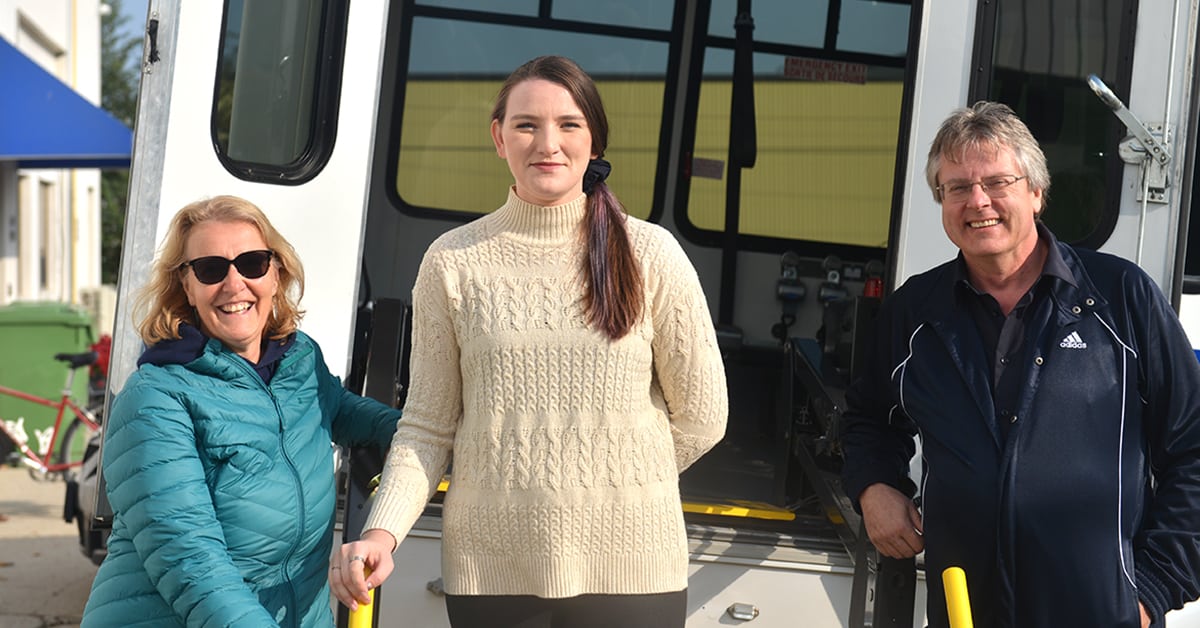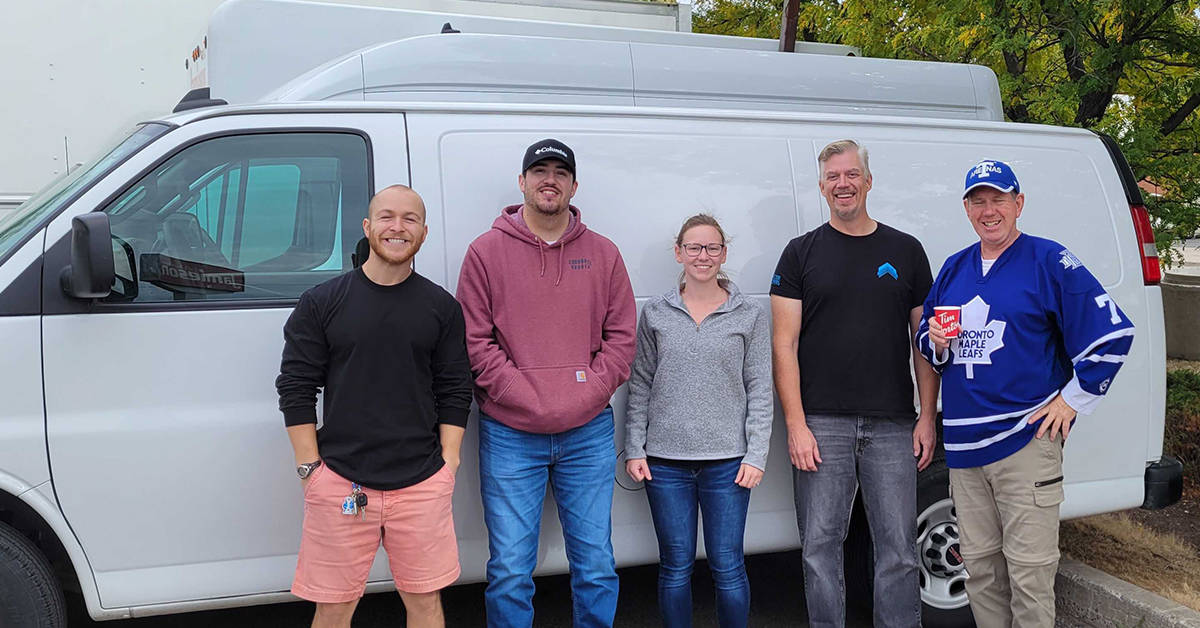Kiwanis Transit, the Elmira-based specialty transportation service, is celebrating 30 years of being a fixture in the community.
The service has grown from one bus and 85 riders in 1992 to nine buses and almost 60,000 riders per year before the pandemic hit, according to former general manager Cheryl Fisher.
“The community has just been incredible supporting us,” said Fisher, who recently retired from the post.
“We provide transportation to all eligible riders, so we’re dealing with clients from [Elmira] District Community Living, we’re dealing with elderly people over the age of 65 – every reason that you or I put our keys in the car is basically what we provide transportation for. So, social appointments, personal appointments, day programs, dialysis, Alzheimer’s approved programs…it’s basically getting people out and allowing them to… remain independent in their own home,” she explained.
The specialized transit service which provides rides to the elderly and those with low mobility operates in Woolwich, Wellesley and Wilmot townships. It’s an option that neighbouring counties such as Wellington do not have, Fisher explained.
“We travel back and forth to Kitchener-Waterloo daily many times to hospitals, medical appointments. We’ve become a very significant part of people’s lives. And 30 years later, here we are still,”
For current general manager Lawrence Lambkin, celebrating the 30th anniversary tells the community that it will still be here to provide the service to those in the community that need it.
“That’s exceedingly important for people that may have barriers to getting out interacting with the community. It’s exceedingly important to make sure that those barriers are removed, and that we help those people,” he said.
Without Kiwanis Transit, those with low mobility would be without a transportation option, Lambkin added.
“I don’t see another resource out there for people, especially in the rural areas that don’t have access to conventional transit. I don’t see any other form of access to the community for those people in the rural areas,” he said.
Fisher also pointed to the importance of expanded transit options in the region.
“Transportation, in all of its components, is critical to people’s decisions to live in this community. And if that’s more predominant every day especially $2-litre gas as well, it becomes an affordability issue.
“We can’t continue to grow as a community and to have a busy thriving community if we’re not going to provide the services that people need.”
There is also the need to plan for the future given expected demographic changes, Lambkin added.
“People in this changing community will need to utilize and use transit services more and more now and in the future,” he said.
“If you look at the population in certain areas, up to 20 per cent of the population that live in a certain area may need to utilize specialized transportation now and into the future. Not all those people use it… but in the future, it’s going to be more limited with the density of areas to own a car. And having transportation needs, provided – especially for those people with special needs – is essential.”
While there are currently no concrete plans for Kiwanis Transit to expand, there is a “vision for growth,” Lambkin explained. This includes areas just outside of the current coverage area.
“Limiting ourselves to the service that we currently provide would be a discourtesy to the population outside of the area that we currently service. I think if you have a vision that does not include growth, you’re doomed to die eventually. So you have to grow, you have to expand,” he said.
“We want to help as many people as we can in the community. And if that means in the future, that we’re able to expand with fundraising to go outside of our area right now, that would be great,” added Carie Stroszka, the organization’s finance and administrative manager.
Expansion will take creative thinking, said Fisher, noting she already sees the current management team moving forward.
“[They are] looking at coming up with creative ways of being able to make transportation available to people… as part of their vision. And I think it’s amazing, because living in a rural community, we know what it means [and] how important it is to have the services to remain here. And we need it to grow.”









